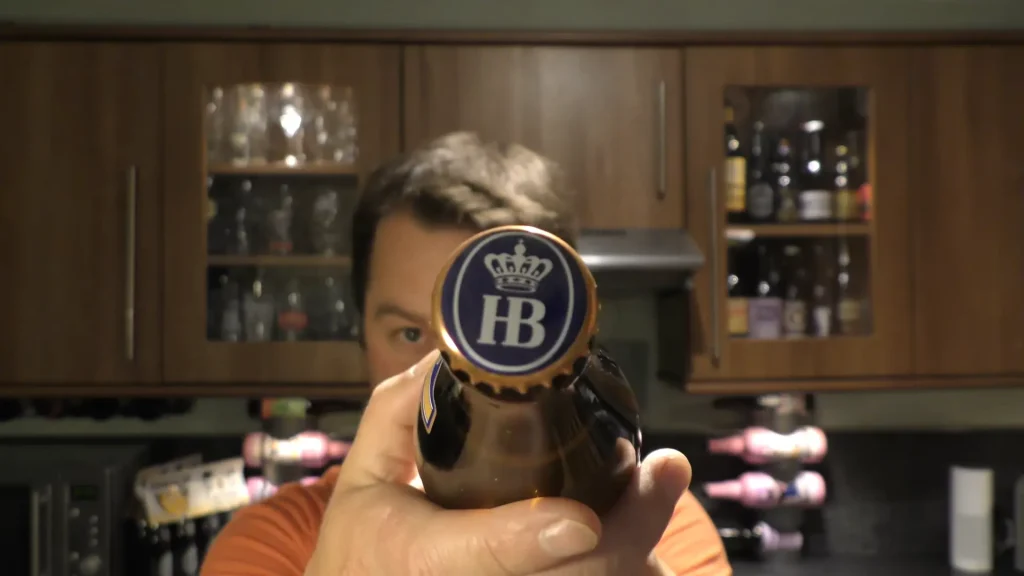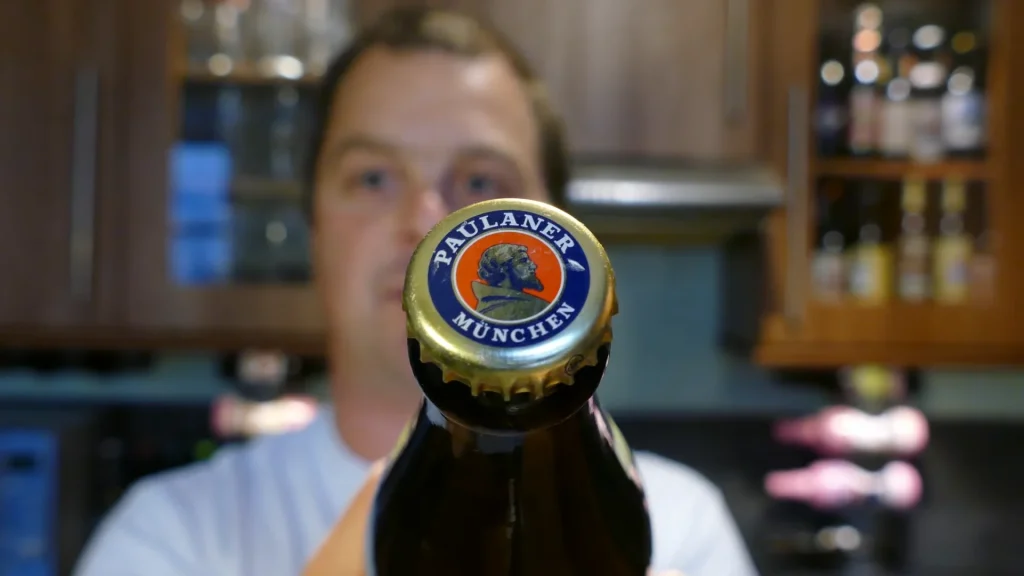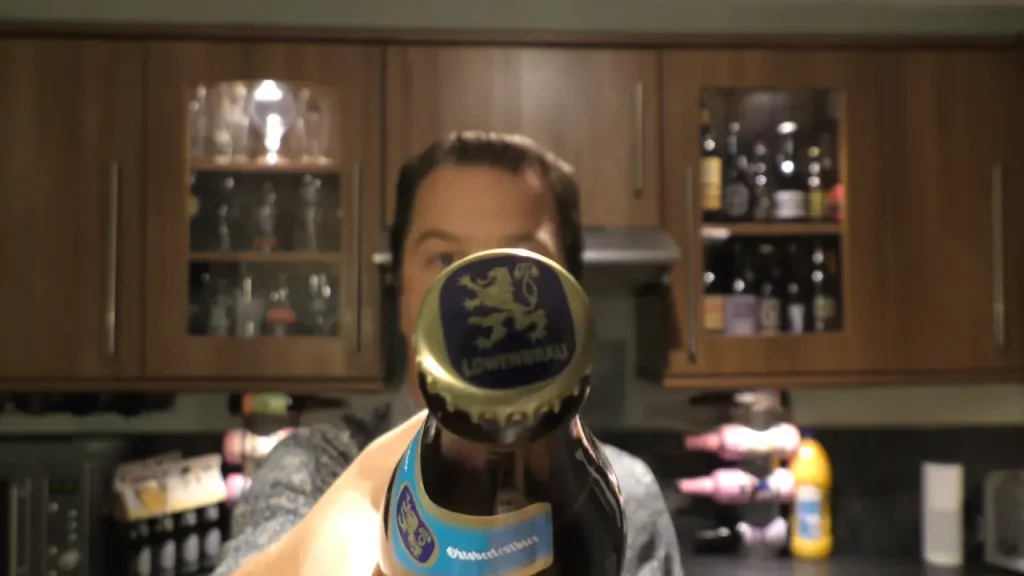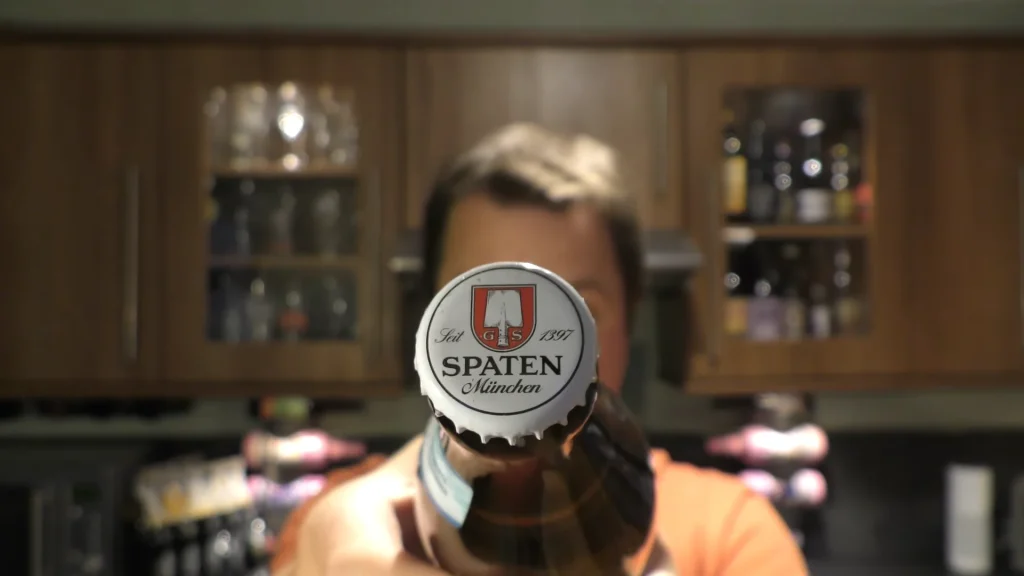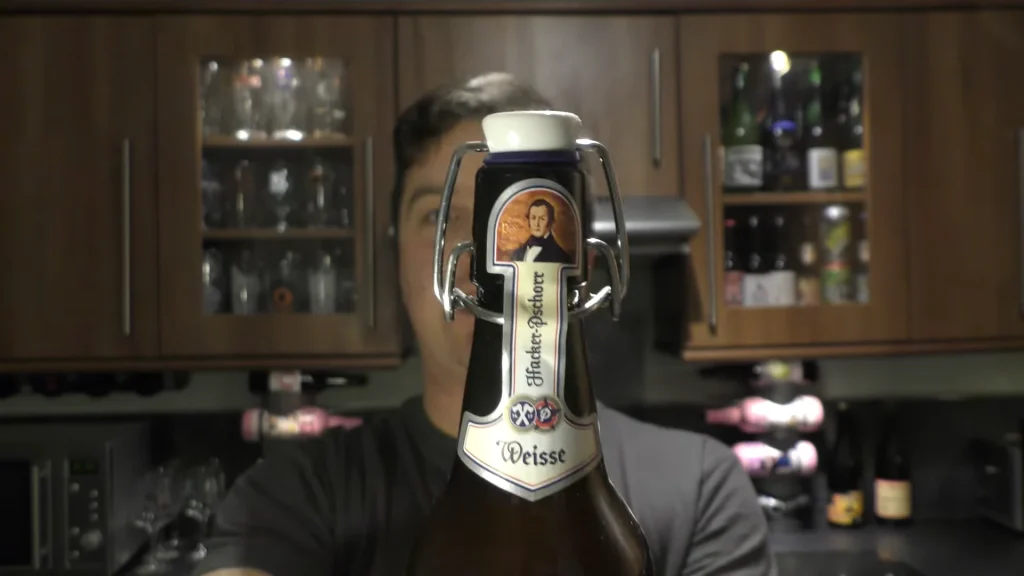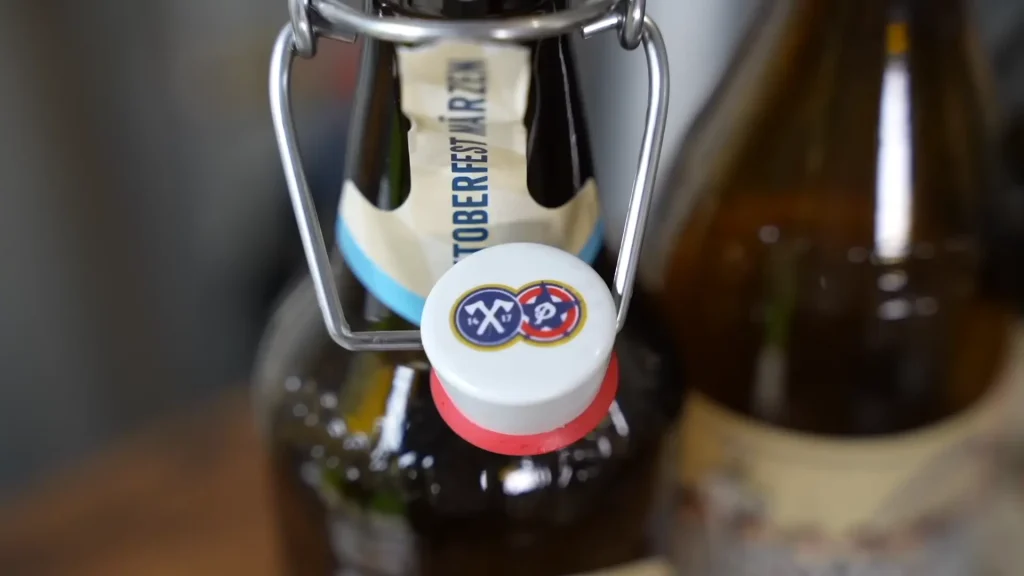Oktoberfest festival will be the gathering of almost 6 Million people and they all gather to enjoy the traditional German Beer. How much do you think they can consume?? Some thousands of liters?? Nope, you are absolutely wrong. In Oktoberfest, Approx 7 Million liters of Beer will be consumed 😯. Surprised huh? I was also surprised to see how the beer works on Germans.
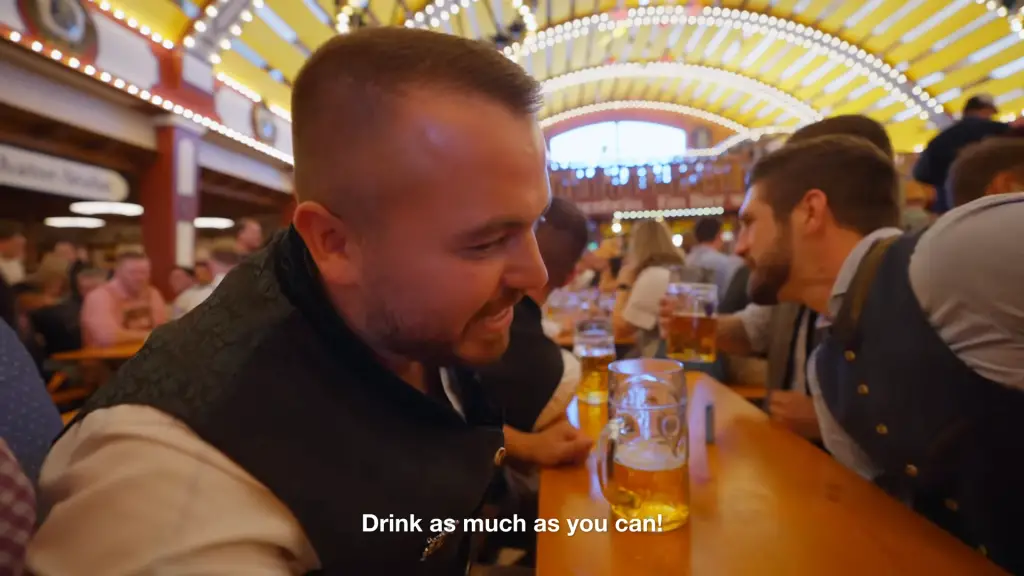
What Exactly Is an Oktoberfest Beer?
75,800 hectolitres (7.5 Million liters) of German beer brewed locally in Munich is consumed every year at Oktoberfest. The breweries are also represented in the traditional parade at the Opening ceremony of Oktoberfest. They carry their beer wagons along with the people in folk costumes(Traditional German Wears).
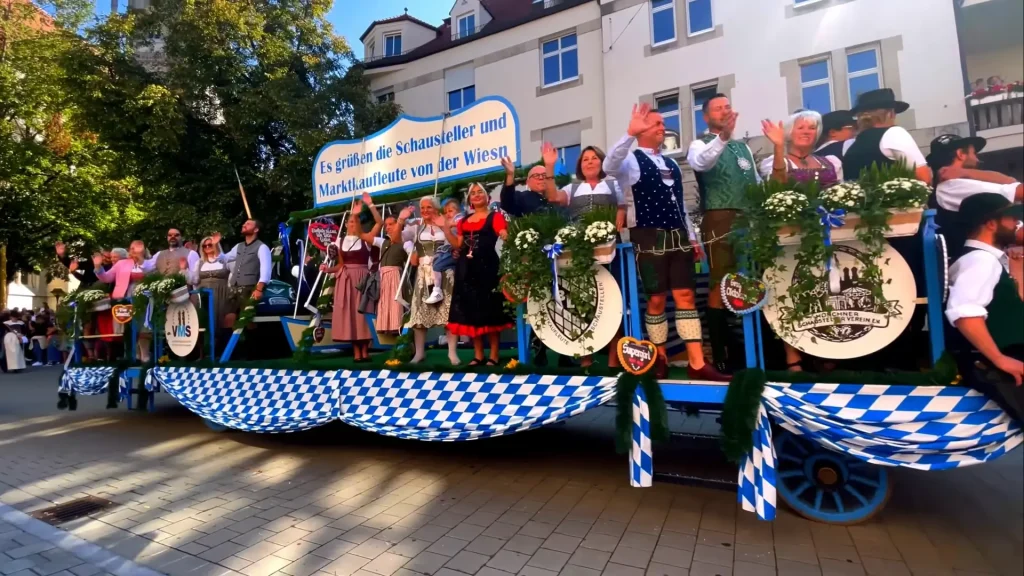
Oktoberfest Beer is specifically made for this Oktoberfest festival which takes place every year in Munich Germany. Oktoberfest Beer features six local breweries in Munich only. From making this beer to serving at the festival they are authorized and permitted. Spaten, Hacker Pschorr, Hofbräu, Augustiner, Paulaner, and Löwenbräu. It just doesn’t get any better. Some call it The Nectar of the Gods.
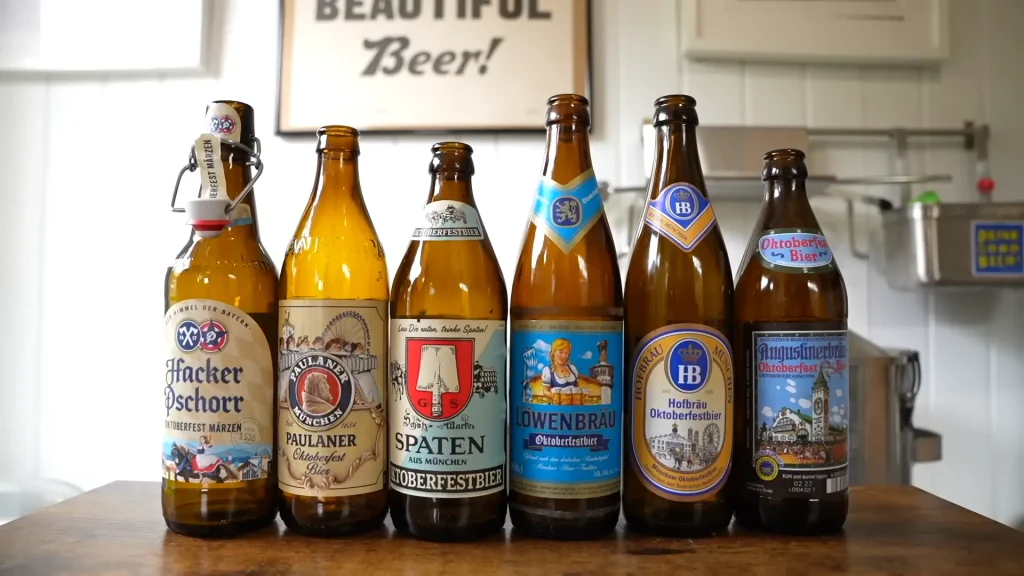
In Oktoberfest, the beer served in the beer tents is a traditional “Marzen-style” which is actually called “Oktoberfest style”. As I said earlier this beer is specially made for only Oktoberfest festival strictly following Reinheitsgebot Purity Law. Every six breweries make their own beer tent and serve only their specific kind of beer. In the Paulaner tent, it’s gonna be Paulaner Oktoberfest and In the Hofbräu tent, it’s Hofbräu Oktoberfest. I always try to keep it simple where beer is involved.
Let me tell you something interesting about those big giant mugs, you have been seeing, they call it maß or you can call it mass. Beer of Oktoberfest is only sold in these mugs by the liter. With Oktoberfest beer in it with a 6% alcohol rate, They contain more than that alcohol, don’t take it lightly, it’s not a piece of cake. Don’t let that light color trick you.
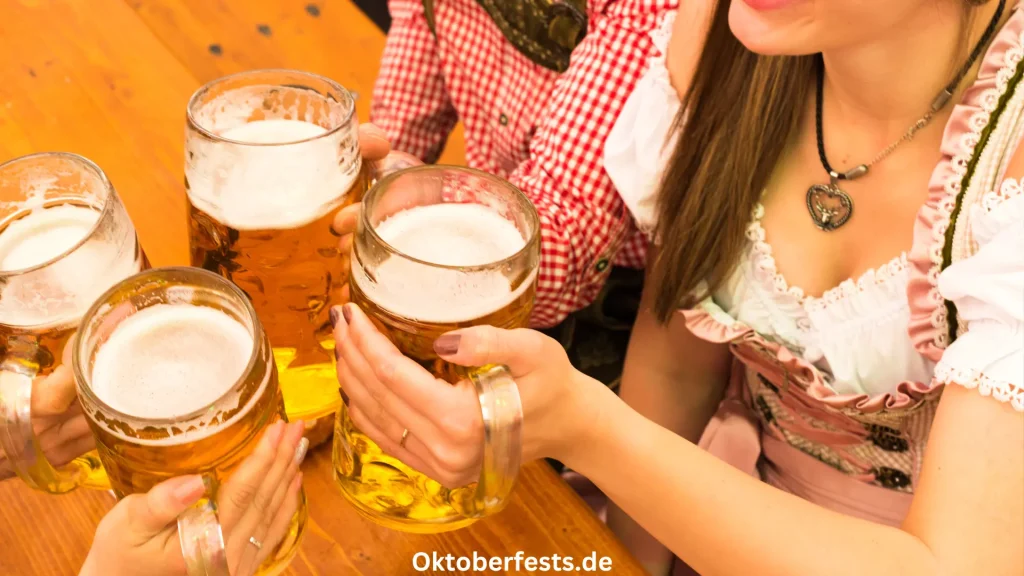
For you at Oktoberfest there isn’t only Beer, yes there is more. You can have wine, soda, Radler (½ beer lime soda, just like shandy), and some other non-alcoholic beverages.
“When it comes to Oktoberfest, it’s essential to recognize that the beer has undergone changes since the inaugural festival in 1810,” explains Mike Siegel, the R&D manager at Goose Island. Siegel recently collaborated with Munich’s Spaten Brauerei, one of the festival’s official breweries, to develop a new Oktoberfest beer for Goose Island. He believes this is the most significant misconception about the style.
Augustine also has three smaller tents: the chicken and duck grill Ammer, the Wildstuben, and the Zur Bratwurst tent. What sets this brewery apart is that it’s the only one still using traditional 200-liter wooden barrels, called Hirschen, for storage.
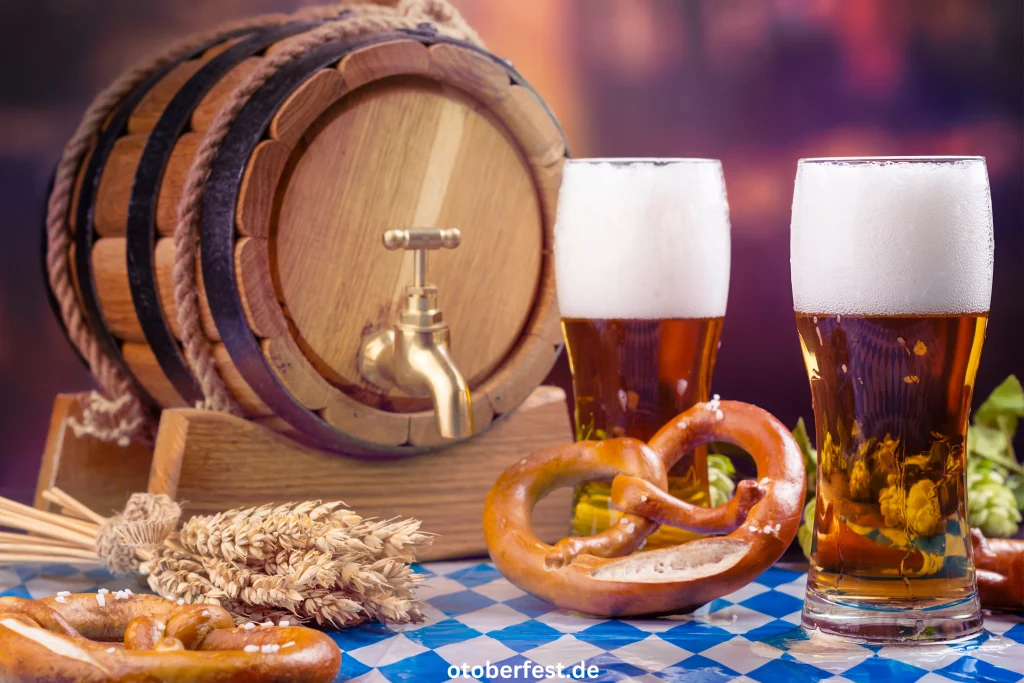
RAW, Jan Saurer
Top performance by the waiters and waitresses: Every year, around 7 million liters of beer are served at the Oktoberfest.
In America, when we talk about Oktoberfest beers, we usually think of reddish, slightly sweet brews called Märzen. These are lagers made in March and aged until fall. But at the real Oktoberfest in Germany, the beers are more like what we think of as typical German lagers—lighter in color, similar to a style called Dortmunder.
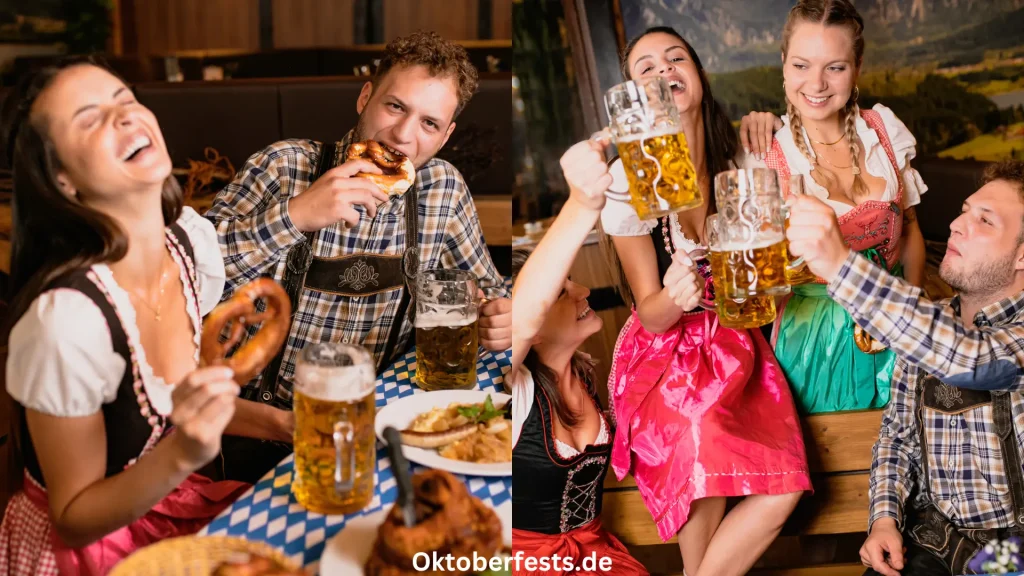
Back in 1810, Munich’s beer was dark lager, but by 1872, they introduced the amber Märzen we know today. Over time, they started using lighter malts, so the beer got even lighter. Nowadays, the beer served at the Munich festival is golden and a bit stronger than Helles, another light German lager style. It’s not like the reddish beers American brewers make, which use different malts for color and sweetness.
So, American Oktoberfest beers aren’t quite the same as the ones in Munich. Some American brewers do make beers closer to the modern German style, while some German breweries even export American-style beers to the U.S. It’s like a beer culture exchange!
So, let’s raise a glass—Prost!—to both the German-style Dortmunder Oktoberfest and the American-style Märzen Oktoberfest. Cheers! 🍻
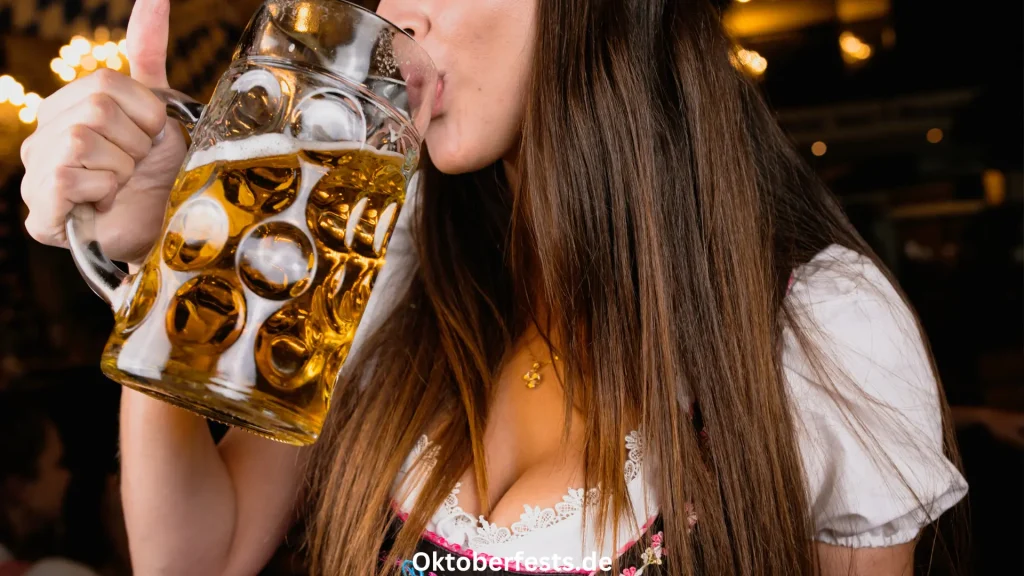
Verein Münchener Brauereien e.V.
The six brewmasters Andreas Brunner (Augustiner), Rainer Kansy (Hacker-Pschorr), Rolf Dummert (Hofbräu), Bernd Kräußel (Löwenbräu), Christian Dahncke (Paulaner), and Friedrich Geiger (Spaten) are the makers of Munich Oktoberfest Beers 2023.
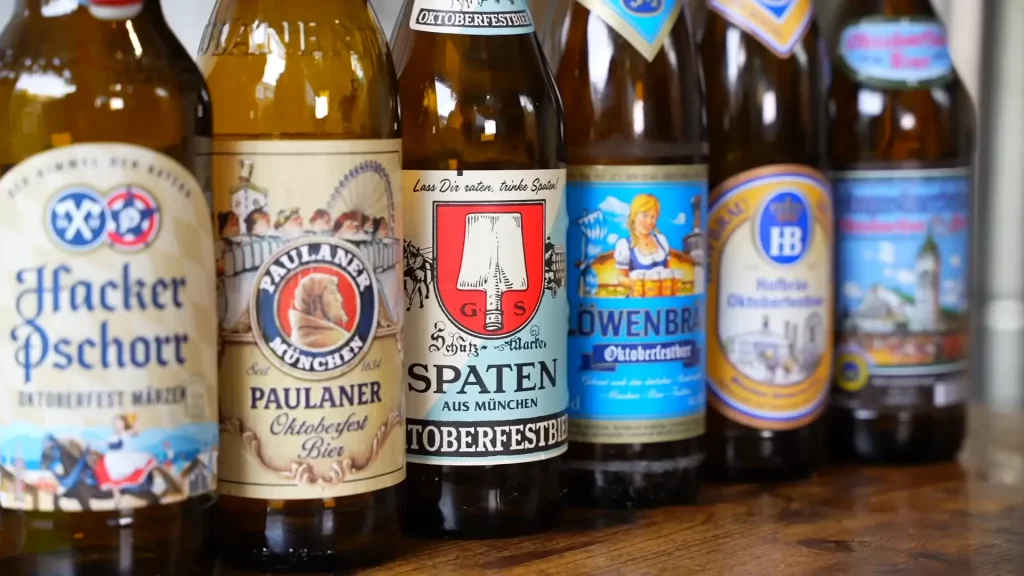
Oktoberfest Beers
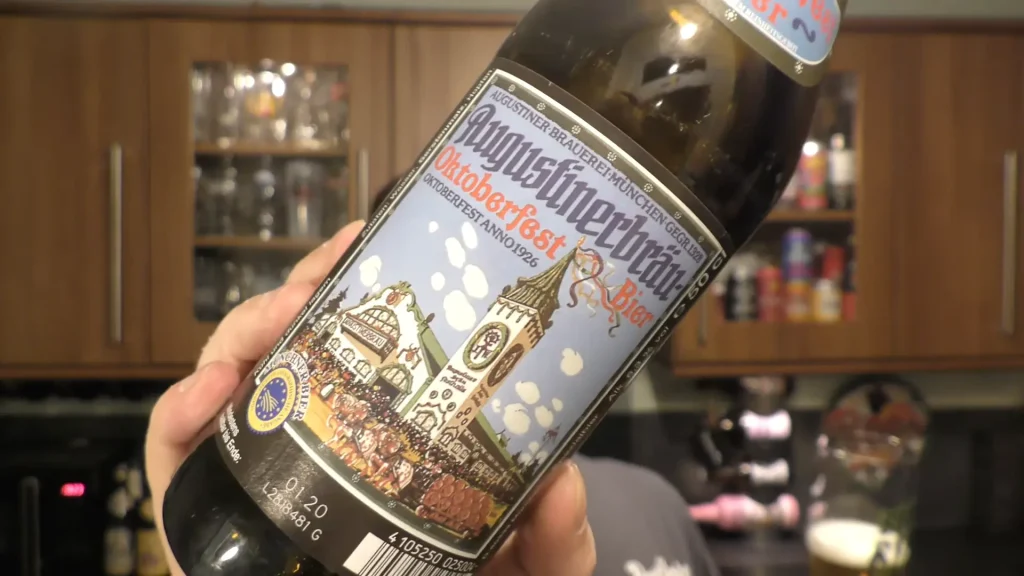
Augustine Oktoberfest 2024
The Augustiner Brewery was founded in 1328, it’s the oldest brewery in Munich which is almost 700 years old. This Brewery was established in the Augustinian monastery and supplied beer to The Royal Family until Hofbräu was founded in 1589. Do the Bavarian royal drinkers know no loyalty???
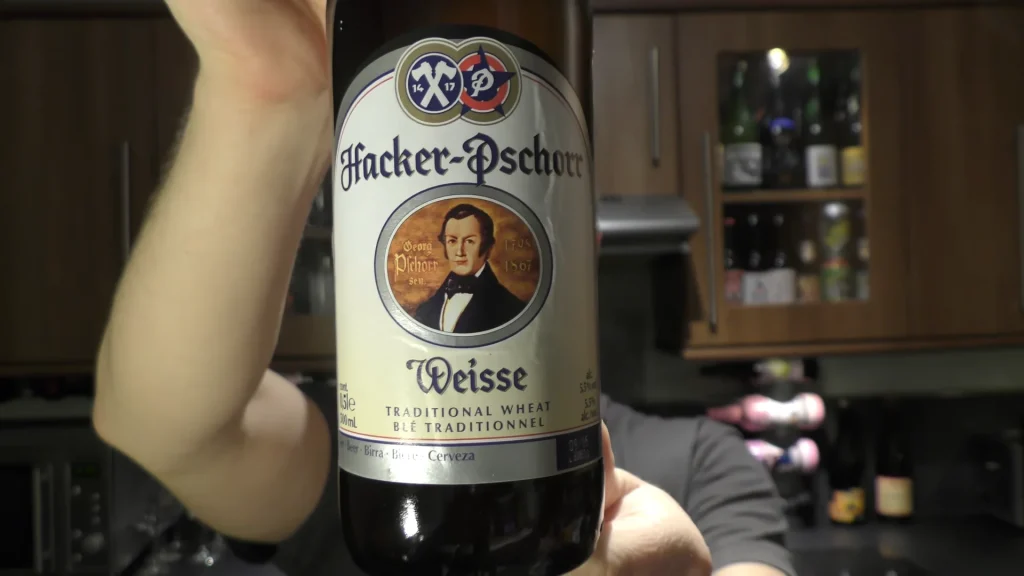
Hacker-Pschorr Oktoberfest 2024
This Brewery (Hacker-Pschorr) was founded in 1417. Hacker Pchorr was run successfully by a married couple Joseph Pschorr and Maria Theresia Hacker. Successful marriage and successful business(Beer can do that).
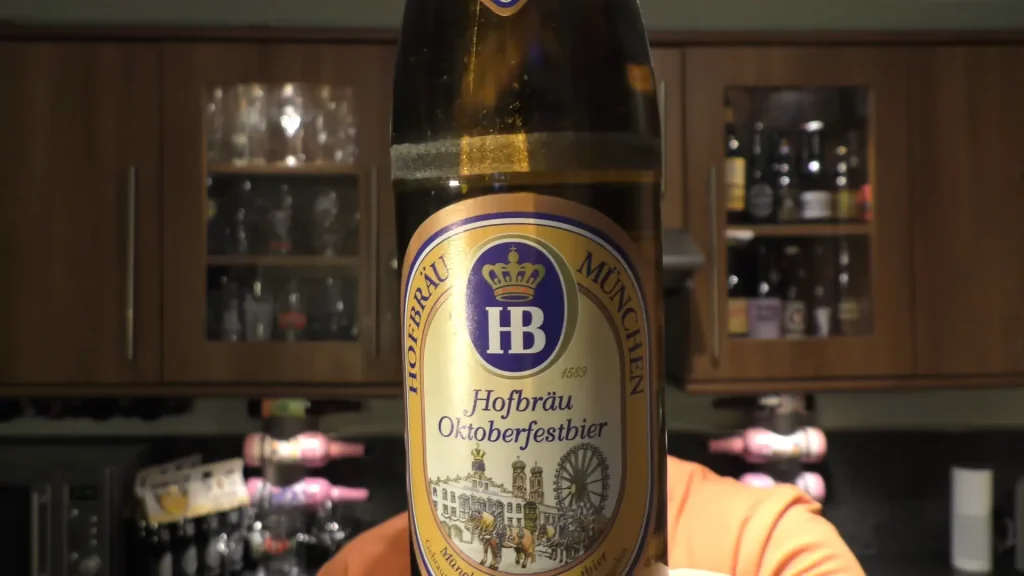
Hofbräuhaus Oktoberfest 2024
Hofbräu was founded in 1589 and it was founded by Wilhelm V, Duke of Bavaria. I’m not kidding… The Duke of Bavaria!!! (our current politicians don’t have that kinda sense 😀). Do you know where Hofbräu was located originally?
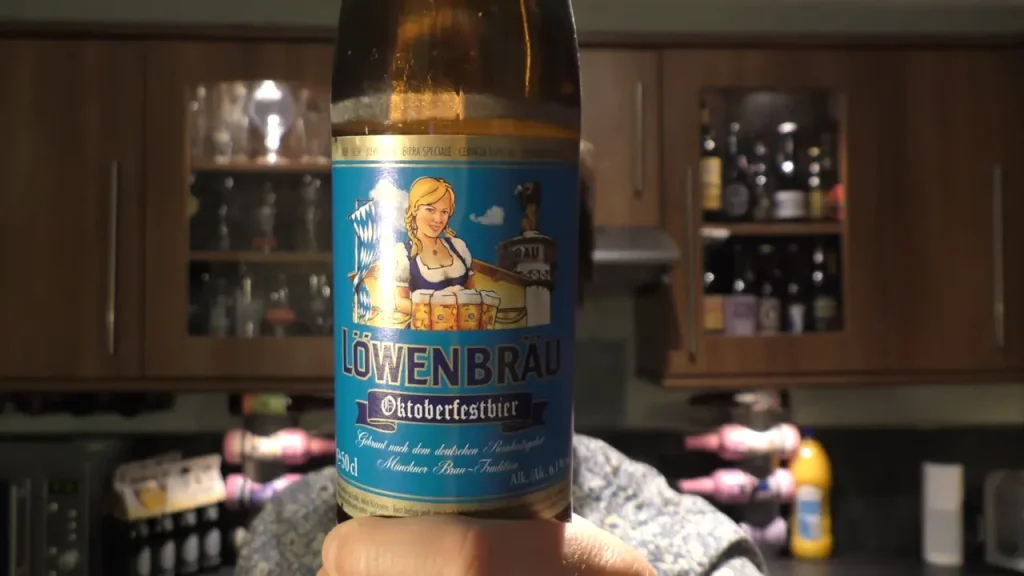
Löwenbräu Oktoberfest 2024
Löwenbräu was founded in the 13th century around 1383 and it has been serving at every Oktoberfest since 1810. Löwenbräu München’s name first appeared in the Munich brewing index in 1746. The company developed into the largest beer brewery in Munich.
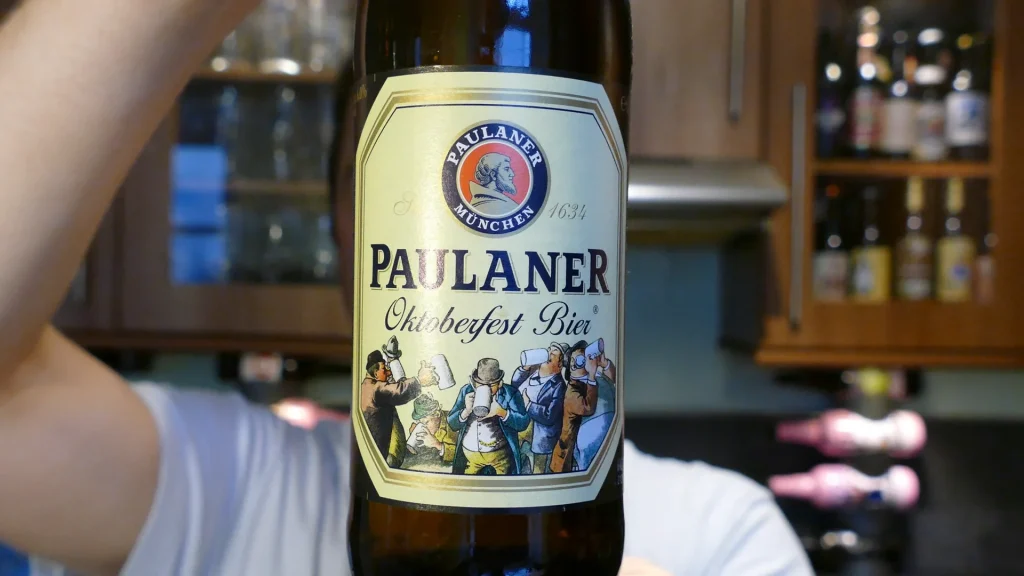
Paulaner Oktoberfest 2024
Paulaner beer was served in 1634 in Paulaner monastery, That makes Paulaner the youngest rosy-cheeked of Munich breweries. It’s almost 384 years old. It was named for Francis of Paolo founder of the Paulaner.
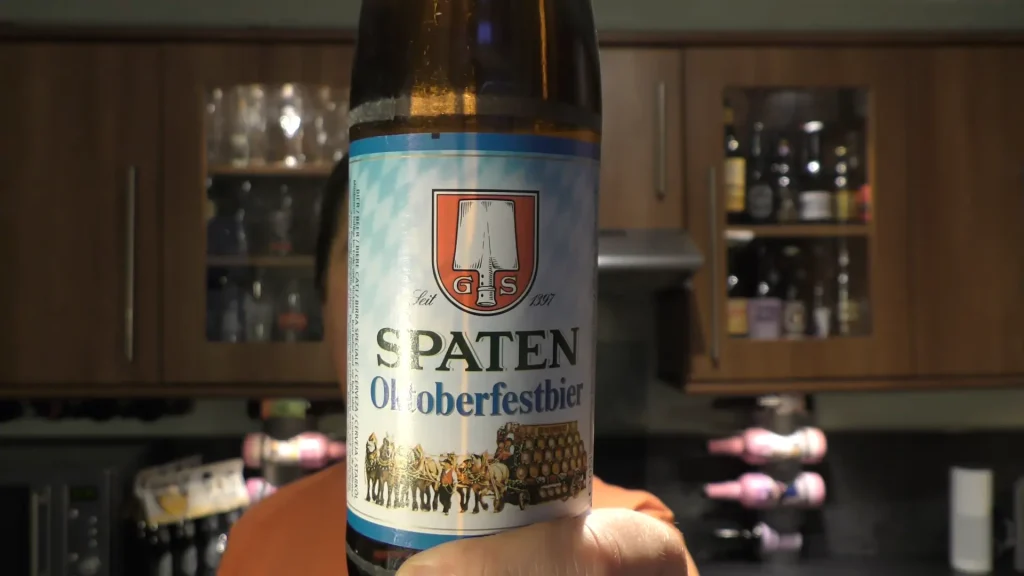
Spaten Oktoberfest 2024
The Spaten Brewery was founded in 1397 by brewer Hans Welser. Since you asked, Let me tell you Spaten means spade, represented by a malt shovel. The brewery has been acquired by the Spatt family and that’s why it has been called Spaten since then.
With Seal from the EU
Hey, did you know that since 2022, Oktoberfest beer got this cool seal called the European Union’s “Protected Geographical Indication”? What that means is that this special beer is brewed only in Munich, following strict rules, and it’s the same beer you’ll find at the Munich Oktoberfest. So, whether you’re sipping it at the festival or elsewhere, you’re getting the real deal, straight from Munich’s brewing magic! Cheers to that! 🍻
